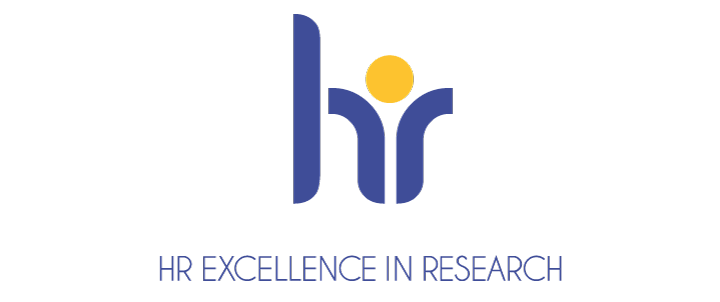HR Excellence in Research award
Background
The European Commission believes that a potential shortage of researchers could threaten the EU's innovation and scientific capacity and productivity growth. The EU therefore seeks to establish a research area, as well as strengthen and structure European research policy. In 2005, the European Commission adopted two documents, the ‘European Charter for Researchers (EU Charter & Code)’ and the ‘Code of Conduct for the Recruitment of Researchers’, which are now key elements of the EU's policy to promote research careers.
Significance for Malmö University
Receiving the HR Excellence in Research Award shows that the University complies with the EU Charter & Code; for example, that we meet specific requirements as an employer and work systematically to improve our researchers' working conditions. The certification makes it easier for our researchers to apply for research funding from the EU, as applications no longer require additional information about the University.
The EU's vision
Europe should attract researchers
The EU seeks to make Europe more attractive to researchers by
- improving the conditions for scientific freedom
- promoting an open labour market for researchers
- combating all forms of discrimination
- promoting access to knowledge sharing
- promoting continuous quality improvement in European higher education institutions.
Universities should be responsible and professional employers
The EU HR Excellence in Research Award means that the certified university is a responsible and professional employer in terms of recruitment and working conditions for both national and international researchers, regardless of their career stage. It also means that such university is committed to a long-term quality assurance process to ensure continued compliance with the European Charter for Researchers (EU Charter & Code). The charter covers
- ethical and professional aspects
- recruitment and selection
- working conditions, working environment and social security
- training and skills development for doctoral students and researchers.
Links
EURAXESS
Researchers in Motion is a unique pan-European initiative delivering information and support services to professional researchers.
Eight actions in the University's action plan
In order to become certified, Malmö University has developed an action plan containing eight actions and a number of objectives. The actions and objectives are aimed at improving and quality-assuring working and career conditions for research staff at the University and are to be met over the next two years. Below is a brief description of each action. The full action plan shows how Malmö University intends to achieve the objectives.
1 | Ensuring that research time for teaching staff is used more efficiently
The working time of most university lecturers at Malmö University is divided for research (20 per cent) and teaching (80 per cent). A longer, "undisturbed" researching period could lead to better focus, increased opportunities (applying) for external grants, opportunities for international mobility and improved quality of research-related teaching.
Target
- Revise how teaching is scheduled for university lecturers during the two semesters each year, enabling cohesive quality time for both research and teaching.
2 | Professional skills and career development for doctoral students and research staff
students and research staff
Malmö University has launched initiatives and provides support within the areas of professional – and career development during the last couple of years. However these initiatives and the support need to be communicated effectively.
Targets
- Doctoral students and researchers know where to find information on what academic ranks and positions entail and what qualifications are required for each position.
- Ensure that doctoral students and research staff are informed of the opportunities for international mobility available to them.
- Doctoral students know where they can find information about current professional skills and career development activities. These activities should be relevant for careers both inside and outside of academia.
3 | Strengthening the academic leadership
Malmö University wants to strengthen academic leadership and improve the appointment process for staff seeking supervisory experience.
Targets
- The Leadership Programme for Future Research Leaders, an ongoing programme at the University, will form the basis for the development of additional academic leadership initiatives.
- Transparent allocation of supervisory positions in doctoral education at Malmö University.
4 | Supporting research communication
Malmö University wants to support researchers in research communication. Some faculties have already, with support from the Communications Department, initiated work with annual plans for research communication including both activities and priorities.
Targets
- All faculties produce annual plans for research communication together with the Communications Department.
- Researchers have better skills and tools to communicate their research.
5 | Supporting employees with issues concerning external research funding
Enhancing external research funding has always been of top priority for Malmö University. It is important for the University to provide support to research staff in the applications process as well as the professional management of research grants. Malmö University also has an ambition to provide researchers with support regarding impact, innovation and utilisation of research results.
Targets
- Improved support to researchers and faculty research boards regarding external research funding.
- Support provided by research support staff meets the needs of researchers.
6 | Research data management
Proper data management is a prerequisite for external funding. Data regulations put higher demands on researchers to secure their data handling. Open access requires researchers to create data management plans and make data accessible for external users. Increasing fluidity of data raises questions about data ownership. Malmö University seeks to increase knowledge and support within data management and security.
Targets
- Make data management easier for researchers.
- Clarify who is responsible for what at Malmö University within the field of data management.
7 | Research ethics
Good and ethical practice is essential for high quality research and to promote public trust. Malmö University seeks to increase knowledge about and adherence to ethical standards among all researchers.
Targets
- Make it easier for researchers to act according to ethical standards.
- All researchers should be knowledgeable in research ethics and be equipped to act within ethical standards.
8 | Further development of the recruitment and reception procedures for international staff
A professional recruitment and reception process for international staff is fundamental for talent management at Malmö University. The goal of the newly launched International Staff Support is to develop and provide clear, consistent, and correct support for international staff members and to provide support to management and administration in the recruitment process.
Targets
- Malmö University provides competent, accessible, need-specific, and consistent reception of international staff to enable a positive candidate experience.
- The support provided by International Staff Support is not only well-known within Malmö University and external stakeholders, but also utilised by the same.
- All doctoral students take part of the university-wide Introduction Programme.
The action plan is based on views from the University's research staff
The action plan is based on the views and wishes expressed by our doctoral students and researchers in both interviews and surveys. The crucial part of the University's application process to receive the HR Excellence in Research award has been to listen to what our researchers and doctoral students think about the working conditions at the University.
In the autumn 2020 and the spring 2021, interviews were conducted with researchers and doctoral students to better understand how they view their working conditions and what they think needs to be improved. To complement the interviews, all researchers and doctoral students at the University were sent a digital survey on working conditions. The response rate was high, indicating a high level of engagement.
In order to avoid parallel processes, the project team has aligned views and requests with already ongoing processes and projects, including the comprehensive research evaluation ERA19.
Project group
A reference person from Lund University is also part of the project group.
-

Johanna Bengtsson - Head of unit
Projektsamordnare
johanna.bengtsson@mau.se
+46 40 665 74 23
-

Anna Beran - International officer
anna.beran@mau.se
+46 40 665 83 42
-

Nils Ekelund - Professor
Projektledare
nils.ekelund@mau.se
+46 72 553 96 87
-

Christian Stråhlman - Doctoral education coordinator
christian.strahlman@mau.se
+46 40 665 71 37
Documents
-

Karin Frydenlund - Head of international office
karin.frydenlund@mau.se
-

Charlotta Holmström - Associate Professor
charlotta.holmstrom@mau.se
-

Suzanne Jacobsson - Deputy University Director
suzanne.jacobsson@mau.se
-

Kristina Josefson - Manager
Ordförande
kristina.josefson@mau.se
-

Ingrid Persson - Head of communications
ingrid.m.persson@mau.se

